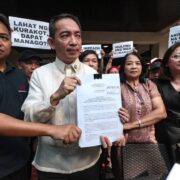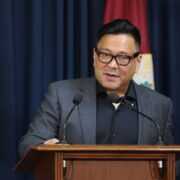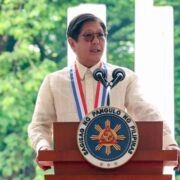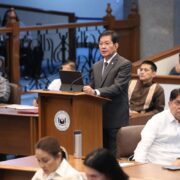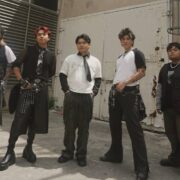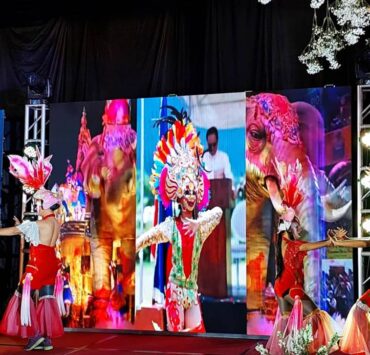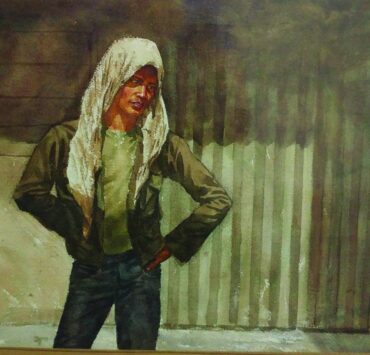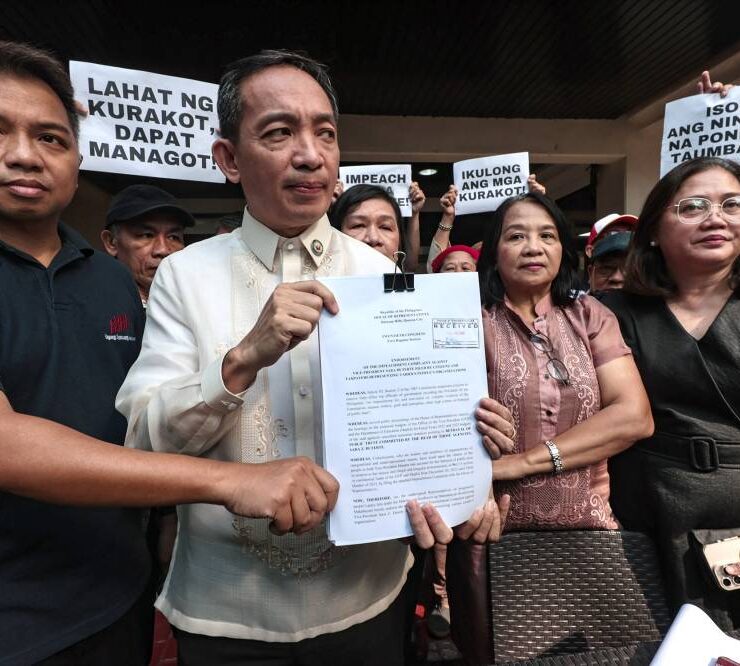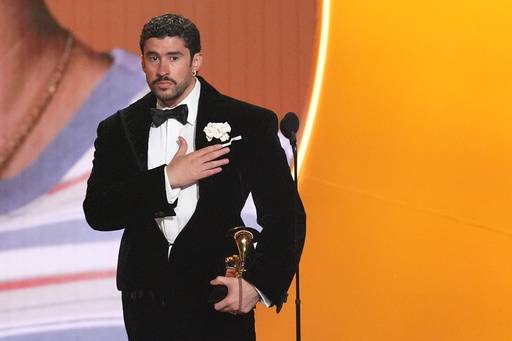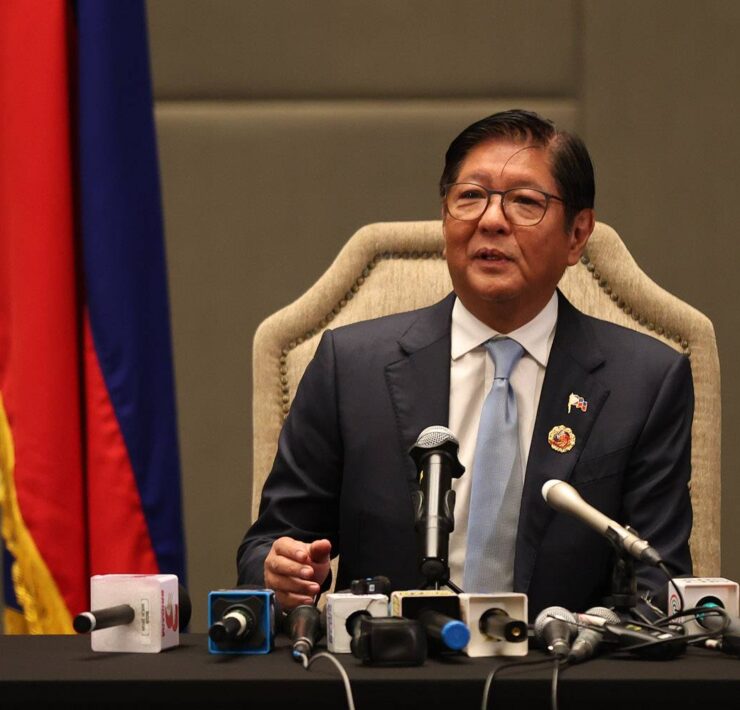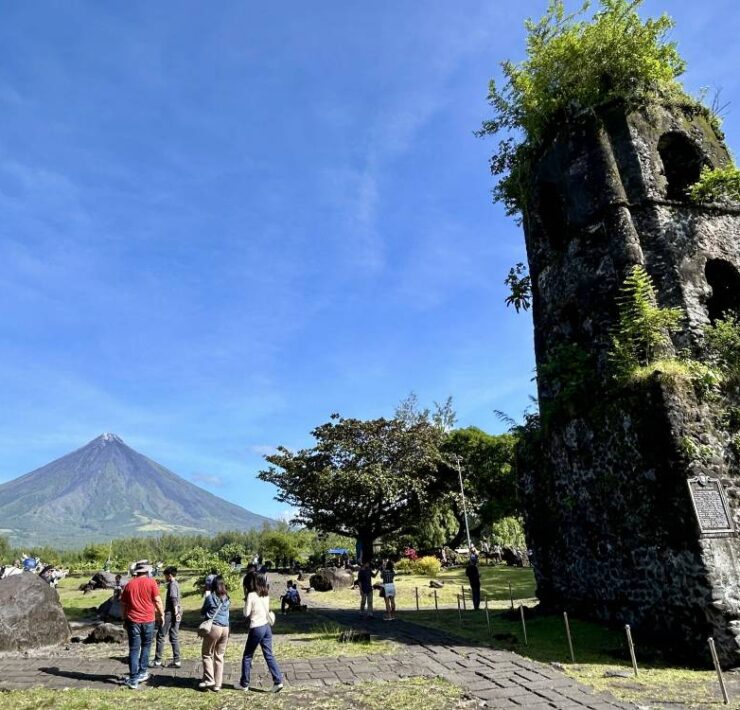Remembering Onib Olmedo, the man and artist
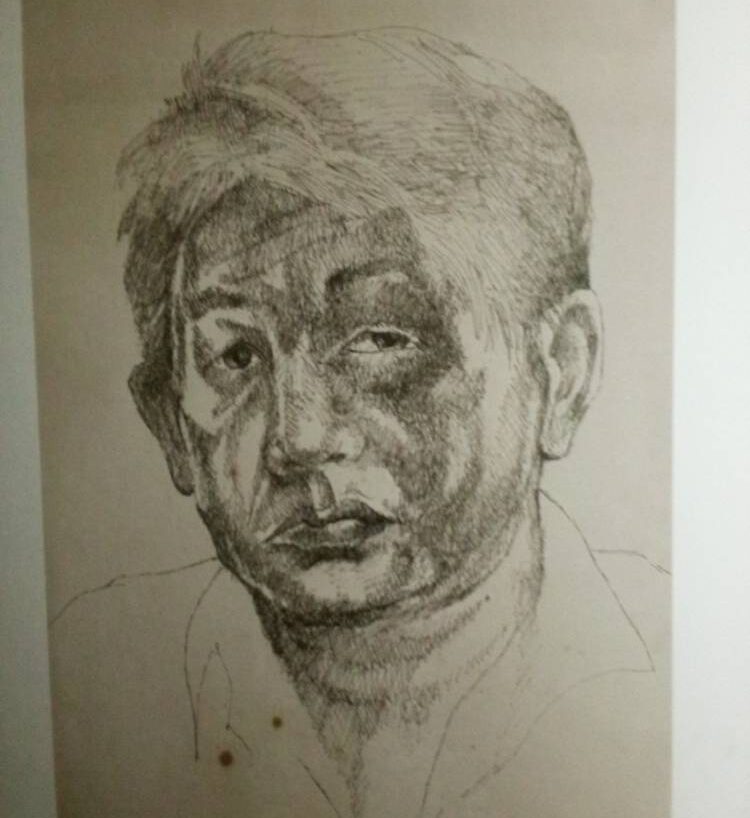
Painter Onib Olmedo (1937-1996) was one of the shining lights of the visual arts world during the last decades of the 20th century.
He was known for his strong expressionist paintings with distorted faces and figures that horrified high society matrons. One called his works “horrendous.” When this got back to Olmedo, he only laughed out loud and made a wisecrack, for he was also known for his spontaneous wit, jokes and puns, often at his own expense.
Olmedo the man and artist comes alive in the recently-published book “Onib and Me,” written by his wife Bettina Rodriguez-Olmedo, an award-winning writer, and published by Léon Gallery Fine Art and Antiques, with a foreword by Alfredo Roces.
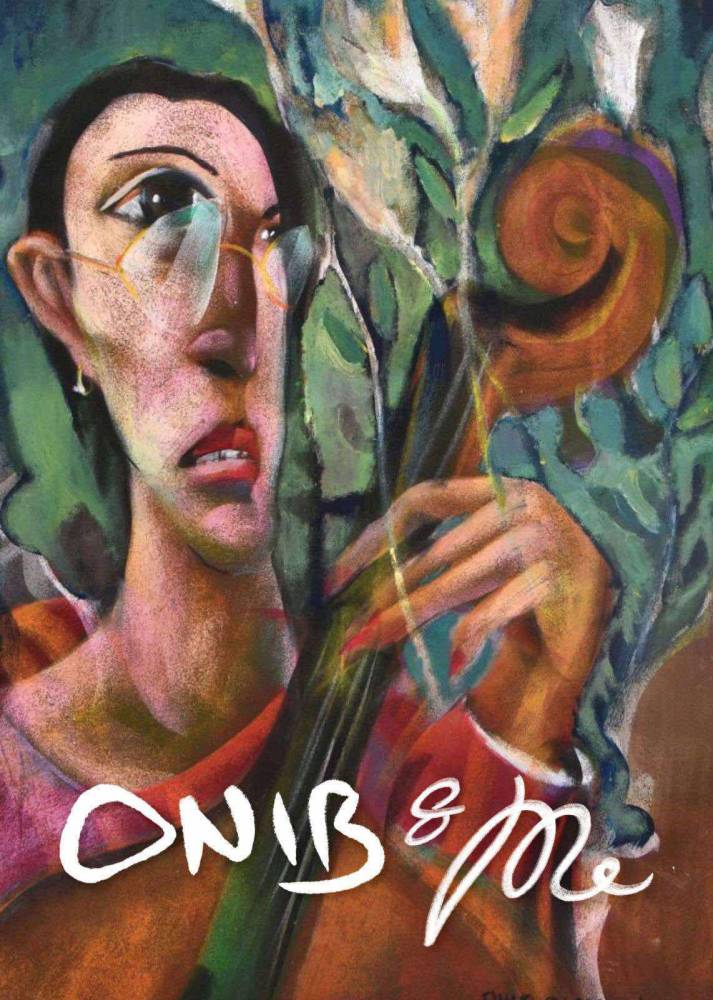
In a few choice words, the author can capture her husband’s character. Those who knew Olmedo well or at least fairly well can only confirm this: “Onib was kind and had empathy for people from all walks of life. He treated everybody like a friend … He didn’t have a mean bone in his body and never spoke ill of anyone.”
The truism that opposites attract may apply to Onib and Bettina: “Onib and I had very different personalities; he was offbeat, while I was more of the classical type. I loved dressing up, he hated it.”
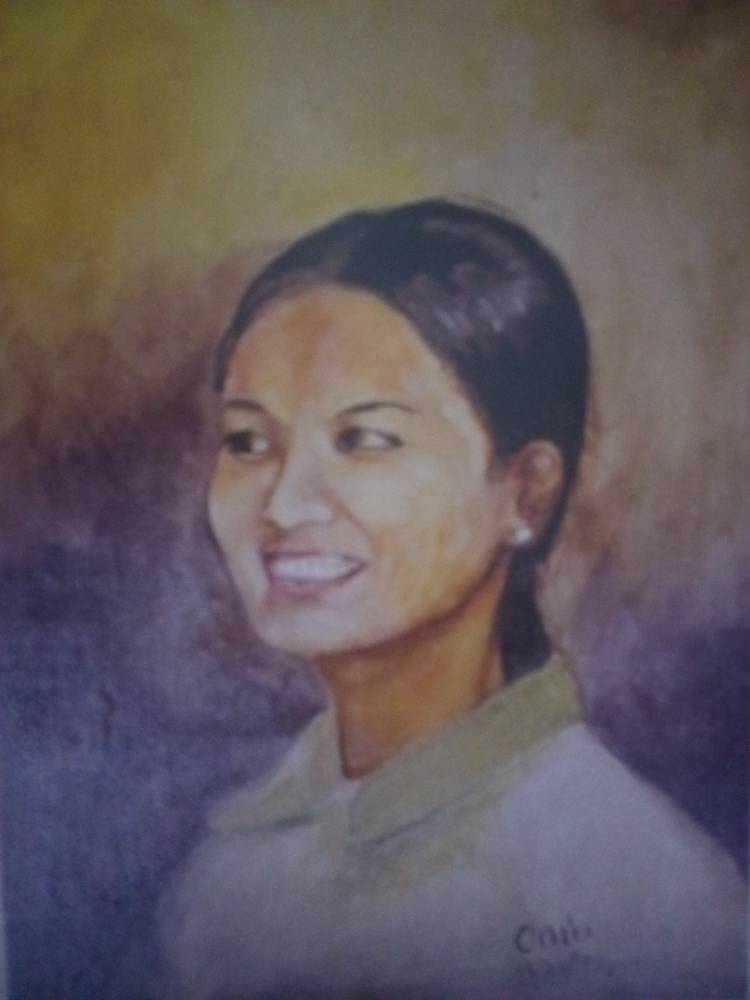
Olmedo was one of the celebrated artists and writers who hung around the Heritage Art Center in Cubao, Quezon City. It was owned by Odette Alcantara, a dear friend of happy memory. The master Vicente Manansala, with his booming Kapampangan voice, would sometimes hold fort there, for there was a Manansala Café and a chess tournament in his honor.
Olmedo played chess well and had won various tournaments. I myself played chess in my fashion; at least I knew the moves. When I asked Olmedo how I could improve my chess, he replied,“You have to read chess books and study the moves of the masters.” That ended my interest in the sport.
Valentine’s gift
Olmedo’s first Valentine’s gift to his wife the year they were married was a portrait of her, smiling, attractive in a close-necked blouse, almost like a colegiala uniform, with long hair flowing behind her and a pretty face mercifully not distorted.
Olmedo was also a homespun poet, raconteur and humorist whose limericks (some published here), along with his anecdotes, endeared him to friends and followers. Along with Alcantara and Gilda Cordero Fernando, he was one of those behind the satirical column, “Los Enemigos,” in the Inquirer, which poked fun at the Marcos dictatorship during the early 1980s. It was said that Malacañang was annoyed by the column and wanted to know the identities of the “enemies.”
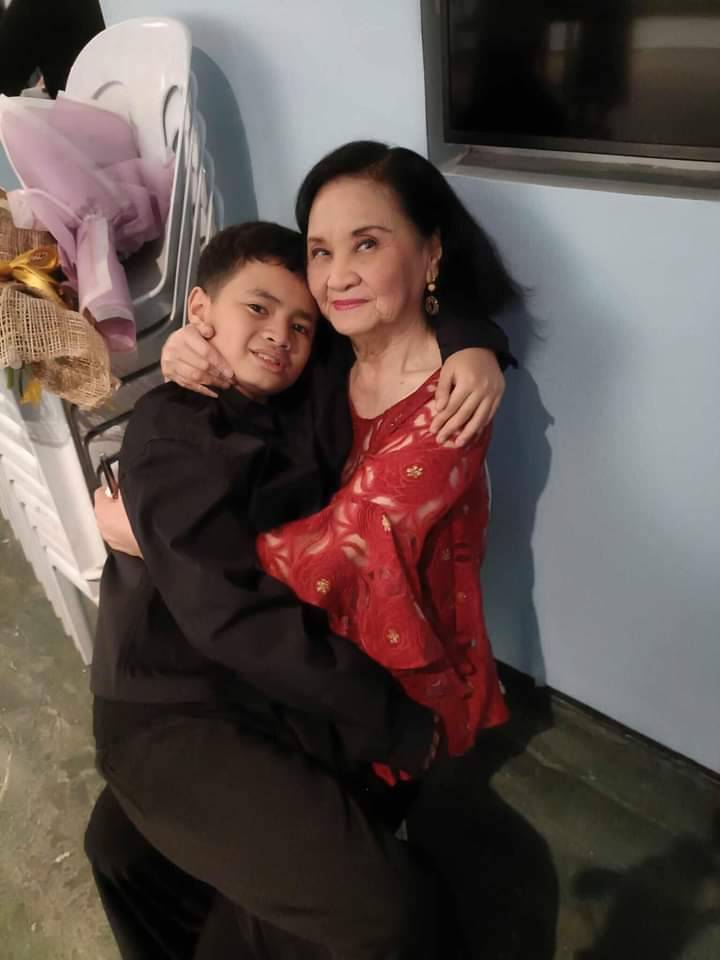
The artist as husband: “Onib was not the type of husband who would indulge in a display of affection. Neither was he very vocal when it came to praises and compliments. However, a simple glance from him would say it all. I remember the day he saw me wearing an inner top in bright yellow with a mini green blazer and a matching skirt, and my hair styled in a French twist. He gave me an admiring glance which was like a caress overflowing with love and affection.”
As father: “Onib never got over the wonder of being a father. His devotion to our daughters (Bambi and Franjo) was the force that unleashed his creative powers.”
Success, acclaim
It was the future National Artist F. Sionil José, then curator of Solidaridad Galleries, who gave Olmedo his first break with a one-man show in 1971. This eventually led to other solo shows in the leading galleries in the metropolis, recognition from his peers, awards from the Art Association of the Philippines (AAP), praise from art critics of different persuasions (artistically as well as politically) and acclaim abroad.
A chainsmoker and survivor of mini-strokes, Olmedo died of diabetes complications and hypertension at the age of 59, leaving a family and an art community in mourning.
“Onib and Me” is a multifaceted portrait, as the wife movingly puts it, of “a loving husband, a devoted father and a creative artist whose art has stood the test of time, conveying the message that in the midst of life’s trials and tribulations, the human spirit will always prevail.”


